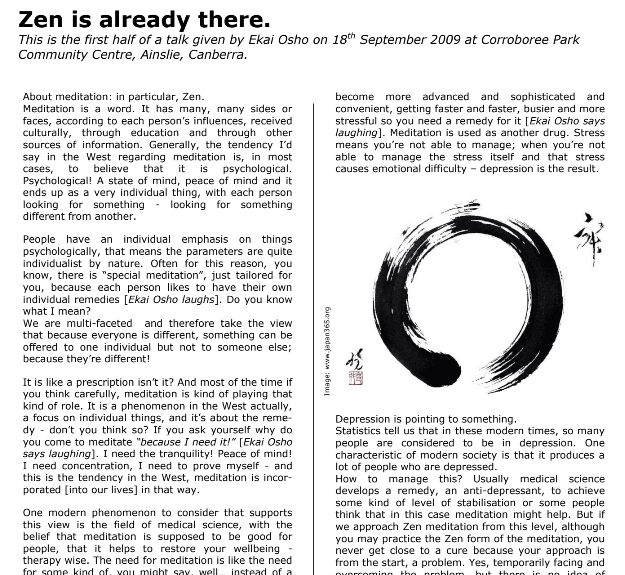Editorial
About meditation: in particular, Zen.
Meditation is a word. It has many, many sides or faces, according to each person’s influences, received culturally, through education and through other sources of information. Generally, the tendency I’d say in the West regarding meditation is, in most cases, to believe that it is psychological. Psychological! A state of mind, peace of mind and it ends up as a very individual thing, with each person looking for something-looking for something different from another. People have an individual emphasis on things psychologically, that means the parameters are quite individualist by nature.
Often for this reason, you know, there is “special meditation”, just tailored for you, because each person likes to have their own individual remedies [Ekai Osho laughs].
Do you know what I mean? We are multi-faceted and therefore take the view that because everyone is different, something can be offered to one individual but not to someone else; because they’re different!
It is like a prescription isn’t it? And most of the time if you think carefully, meditation is kind of playing that kind of role. It is a phenomenon in the West actually, a focus on individual things, and it’s about the remedy -don’t you think so?
If you ask yourself why do you come to meditate “because I need it!” [Ekai Osho says laughing]. I need the tranquillity! Peace of mind! I need concentration, I need to prove myself- and this is the tendency in the West, meditation is incorporated [into our lives] in that way… (An excerpt from a talk given by Ekai Osho, continued in this issue)

